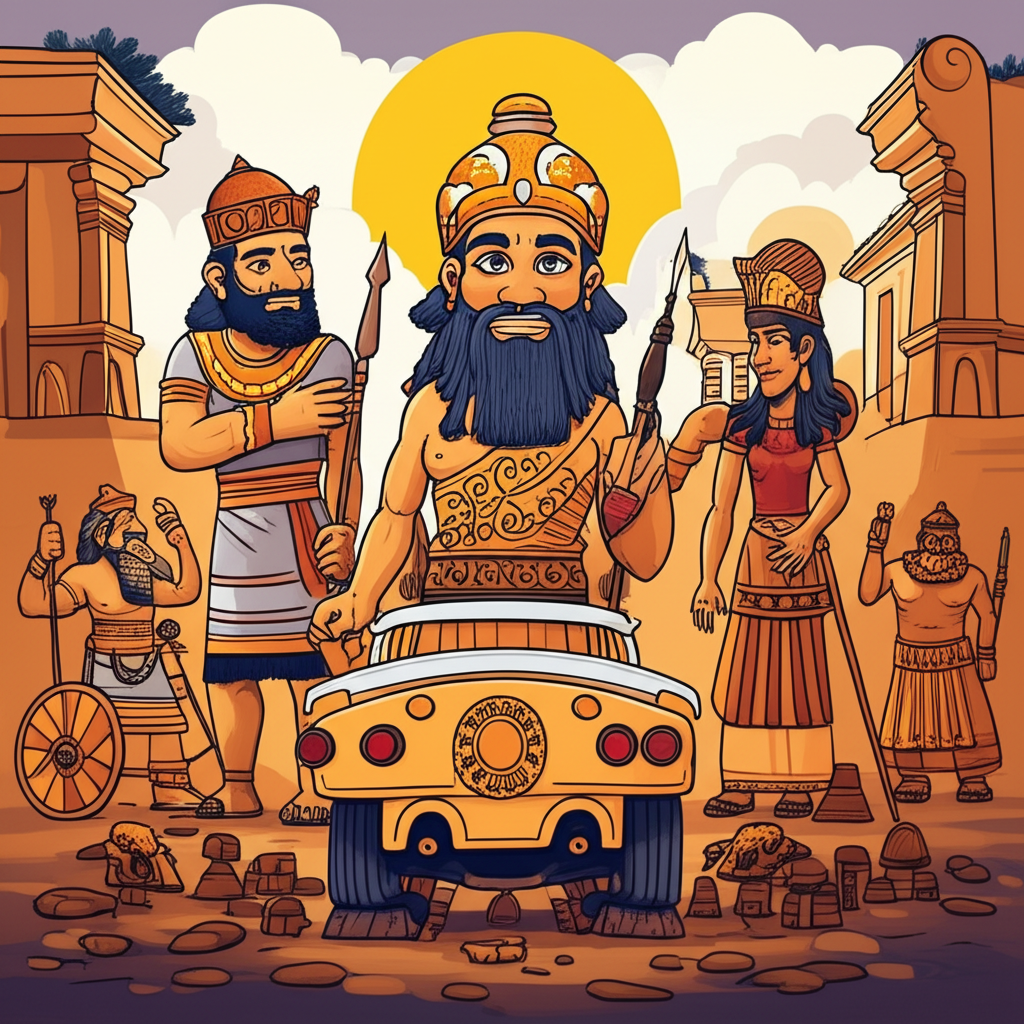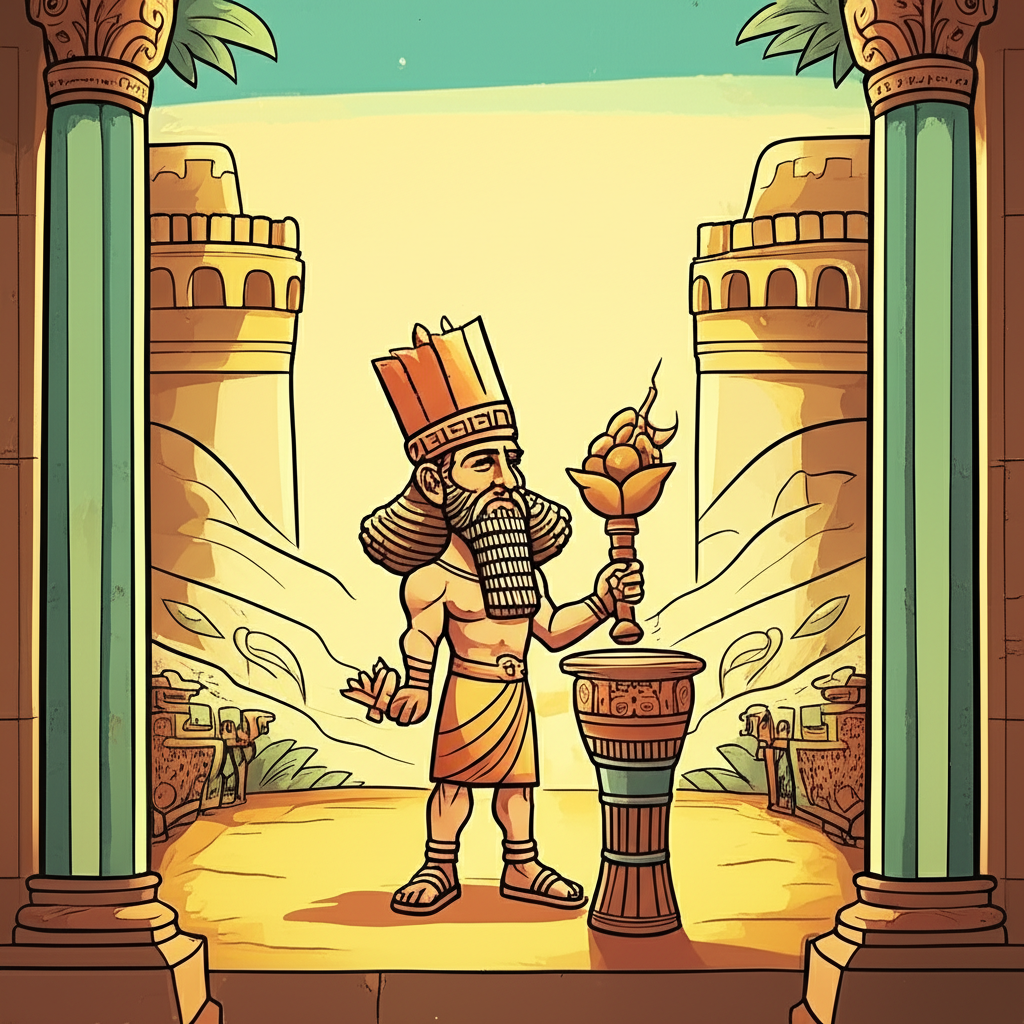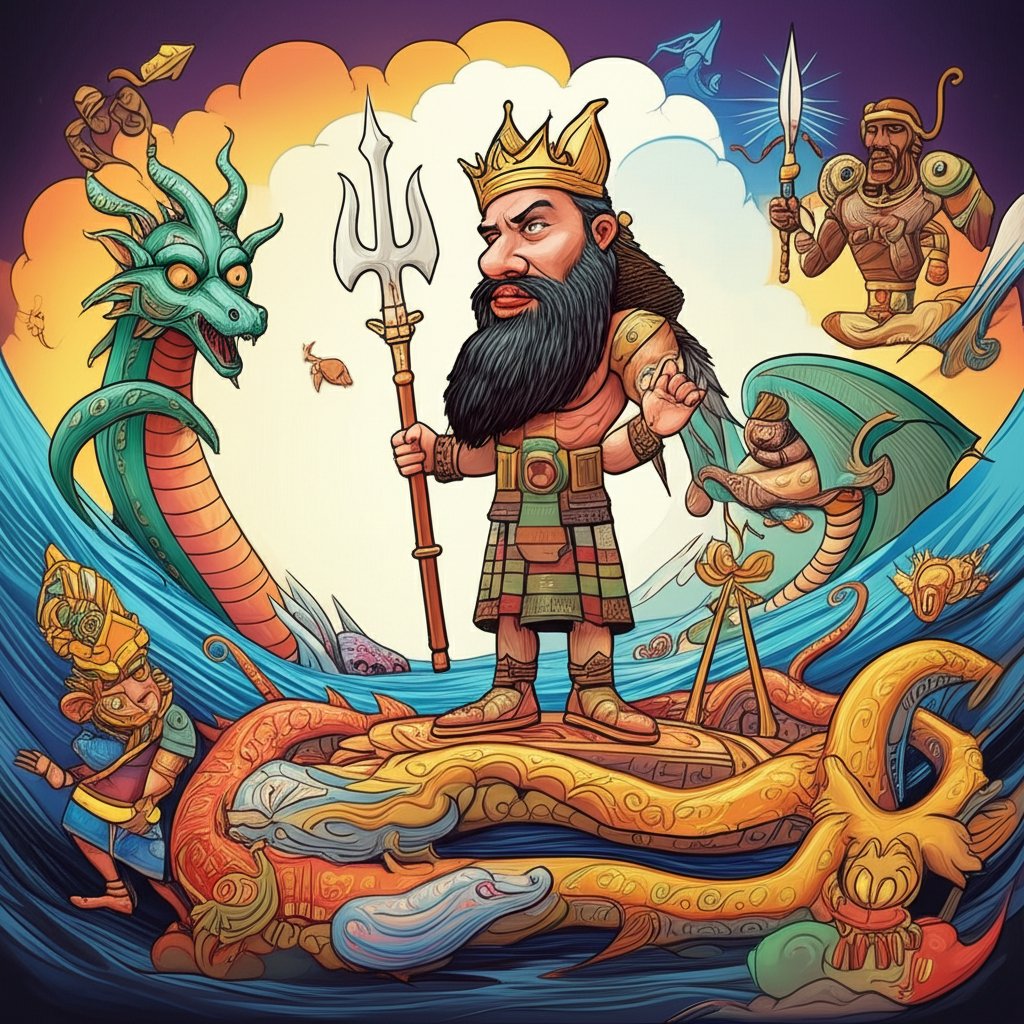
The sands of Mesopotamia, a land cradled between the fertile crescent of the Tigris and Euphrates rivers, hold within them the echoes of civilizations long past. It is from this ancient soil, a cradle of early human ingenuity and complex societal structures, that the Epic of Gilgamesh emerges. This is not a chronicle of historical fact as we understand it today, but rather a treasured collection of stories, passed down through generations by the Sumerian and later Akkadian peoples. These were the myths and legends that shaped their understanding of the world, their place within it, and the very nature of existence itself.
In the third millennium BCE, the land that would become Mesopotamia was a tapestry of city-states, each with its own patron deity and ruling dynasty. Life was inextricably linked to the rhythms of nature – the flooding of the rivers, the bounty of the harvest, and the ever-present threat of the untamed wilderness. The people of this era viewed the world as a place imbued with divine forces, where gods and goddesses actively intervened in human affairs. They sought to appease these deities through rituals and sacrifices, striving for balance and order in a world that often felt capricious. It was within this rich cultural soil, where the boundaries between the human and the divine were fluid, that tales of mighty kings, formidable beasts, and the search for eternal life took root and flourished.
Central to the Epic of Gilgamesh is its titular hero, Gilgamesh, the semi-divine king of Uruk. He is depicted as a man of immense physical prowess, two-thirds god and one-third human. His strength is legendary, capable of feats far beyond mortal men. This dual nature, this potent blend of divine heritage and human frailty, makes him a compelling figure. His symbolic attributes speak to the aspirations and anxieties of his time: his divine lineage representing power and authority, while his human side underscores the universal struggle against mortality and the search for meaning. He is often described with a powerful build, a stern countenance, and a regal bearing, embodying the ideal of a powerful ruler, yet also susceptible to the passions and limitations that define humanity.
The narrative, pieced together from fragments of cuneiform tablets, unfolds as a grand saga of kingship, friendship, and the inescapable reality of death. Gilgamesh, initially a tyrannical ruler whose arrogance burdened his people, finds his world irrevocably altered by the arrival of Enkidu. Enkidu, a wild man created by the gods to challenge Gilgamesh, is initially a creature of the natural world, living among animals and possessing a primal strength. He is a symbol of the untamed forces of nature, a force that must eventually be tamed or integrated into the human sphere. Their epic battle, a clash of titans, ultimately leads not to destruction, but to an unbreakable bond of friendship. This companionship transforms Gilgamesh, tempering his hubris and awakening in him a sense of responsibility and compassion.
Their adventures together are legendary. They journey to the Cedar Forest to confront Humbaba, a monstrous guardian of immense power, a creature that embodies the raw, untamed wilderness that lay beyond the cultivated lands of the city. Humbaba, with his terrifying roar and formidable presence, represents the primal fears of early humans – the dangers lurking in the unknown, the overwhelming power of nature. The slaying of Humbaba, while a testament to their courage, also marks a shift in their understanding of the world, pushing the boundaries of human dominion. Their subsequent defiance of the goddess Ishtar and the subsequent unleashing of the Bull of Heaven further highlights their prowess and the divine consequences of their actions.
However, the most profound turning point in Gilgamesh’s life comes with the death of Enkidu. This loss plunges Gilgamesh into a deep despair, confronting him with the stark and unavoidable truth of his own mortality. The epic then becomes a desperate quest for immortality. He embarks on a perilous journey to the ends of the earth, seeking Utnapishtim, the only mortal granted eternal life by the gods. This quest symbolizes humanity’s enduring struggle against death, the universal yearning to transcend the finite nature of existence. His encounters with various figures and trials along the way are imbued with symbolic meaning, representing the wisdom gained through hardship and the ephemeral nature of life’s pleasures. The story of the flood, recounted by Utnapishtim, echoes other ancient flood myths, perhaps reflecting a collective memory of catastrophic natural events and the divine intervention that was believed to accompany them.
The Epic of Gilgamesh, therefore, is far more than just an adventure story. For the ancient Mesopotamians, it likely represented a profound exploration of several key themes. The relationship between Gilgamesh and Enkidu could symbolize the integration of the wild and the civilized, the power of true friendship to transform and temper the human spirit. Humbaba and the Bull of Heaven might represent the forces of nature that humans sought to control or understand. The central quest for immortality speaks to humanity’s deep-seated fear of death and the desire for lasting legacy. Gilgamesh’s eventual return to Uruk, though not with eternal life, signifies a profound shift in his understanding: that true meaning lies not in conquering death, but in living a life of purpose, leadership, and leaving a mark upon the world through his deeds and his city. The story, in essence, grapples with the very essence of what it means to be human, facing both immense power and profound vulnerability.
In the modern world, the Epic of Gilgamesh continues to resonate, its themes of friendship, loss, mortality, and the search for meaning finding echoes in contemporary culture. It is studied by scholars in literature, history, and religious studies, offering invaluable insights into the worldview of ancient peoples. Its narrative structure and archetypal characters have inspired countless works of fiction, from epic poems and novels to films and video games, where elements of Gilgamesh’s journey or the mythical creatures he encounters are often reinterpreted and reimagined. The quest for immortality, the battle against monstrous foes, and the profound bond of friendship remain universal themes that continue to captivate audiences.
In conclusion, the Epic of Gilgamesh stands as a remarkable testament to the power of human storytelling and the enduring quest for understanding. It is a cultural artifact, a window into the imaginative world of the ancient Sumerians and Akkadians, offering a glimpse into their beliefs, their fears, and their aspirations. As Muslims, we recognize that only Allah (God) is the true Creator and Sustainer of all existence, and that all power and knowledge emanate from Him alone. The stories of ancient peoples, like the Epic of Gilgamesh, are valuable not for their claims of divine power, but for their cultural heritage, their imaginative depth, and their contribution to the rich tapestry of human tradition. They remind us of the enduring human need to grapple with life’s fundamental questions and the power of stories to connect us across vast stretches of time.




